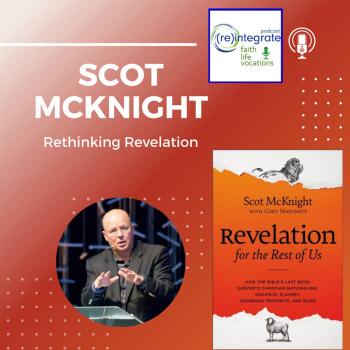 As God Sent Jesus, Jesus Now Sends Us
As God Sent Jesus, Jesus Now Sends Us
The Great Commission is very often pointed to as the ultimate statement for what we are supposed to do as Christians. At the end of the Gospel of Matthew, Jesus tells his disciples,
“Go and make disciples of all nations,baptizing them in the name of the Father and of the Son and of the Holy Spirit, and teaching them to obey everything I have commanded you.”
Where can we get insight into what Jesus is commanding us to do here? The parallel to it is found in John 20:21, where Jesus says,
“As the Father has sent me, even so I am sending you.”
God Sends
John Stott, addressing the Lausanne Congress on World Evangelization in 1974 said,
“‘Mission’ is an activity of God arising out of the very nature of God. The living God of the Bible is a sending God, which is what ‘mission’ means. He sent the prophets to Israel. He sent his Son into the world. His son sent out the apostles, and the seventy and the church. He also sent the Spirit to the church and sends him into our hearts today.”[2]
Verbs for “sending”[3] appear 60 times in John’s Gospel, starting with God sending John the Baptist. The Gospel of John makes it clear that God sent his Son “to save the world through him.” John then states that Jesus sends his followers to continue Jesus’s mission when Jesus says, “Whoever receives whomever I send receives me; whoever receives me receives him who sent me.”
As the Father Has Sent Me…
Michael Goheen writes,
“The ‘as’ in this text (John 20:21) tells us that the mission of Jesus to Israel is to serve as a paradigm for the mission of his followers to the nations.”[9]
Goheen quotes Lesslie Newbigin,[10]
“This must determine the way we think about and carry out the mission; it must be founded and modelled upon his. We are not authorized to do it in any other way.”[11]
Missional Is Who You Are
If you are a Christian, you are missional. In the view of Jesus, there is no such thing as a Christian who is not on mission.
This is not something we should aspire to, it simply is who we are!
The mission of God’s people is a “sent” mission. According to Ross Hastings, In John 20:21,
“We are called to be a missional community of sent ones, but this is because that is what we are. This commission is more an is than an ought. The ought is derived from the is. The church is missional, Christians are missional, because they are conjoined to the missional God and therefore enabled by him, the sending triune God.”[12]
Missional Means Being Incarnational
John Stott saw this missional paradigm as “incarnational.” This term has been used a lot lately in missional church circles, but Stott wrote this way back in 1995:
“Now he sends us into the world, as the Father sent him into the world. In other words, our mission is to be modelled on his. Indeed, all authentic mission is incarnational mission.” [13]
More recently Alan Hirsch and Michael Frost have advocated for this incarnational missional approach.
“If God’s central way of reaching his world was to incarnate himself in Jesus, then our way of reaching the world should likewise be incarnational.”[14] “The Incarnation provides us with the missional means by which the gospel can become a genuine part of a people group without damaging the cultural frameworks that provide a sense of meaning and history”[15] and it “implies a real and abiding presence among a group of people.”[16]
Can We Be Incarnational Like Jesus Was?
In what way is Jesus’s incarnational mission the same as the Church’s incarnational mission? Stott states that the major purpose of the mission of Jesus is unique to him and therefore cannot be replicated by his followers: He is the savior of the world, dying to atone for our sins to bring eternal life.
“We cannot copy him in these things. We are not saviours.”[17]
But there is a deeper, more general understanding of the mission of Christ – and we can indeed copy him in this. Stott writes,
“The Son of man…came not to be served but to serve, and to give his life as a ransom for many.”[18] “The ransoming sin-offering was a sacrifice which he alone could offer, but this was to be the climax of a life of service, and we too may serve…He served in deed as well as word, and it would be impossible in the ministry of Jesus to separate his works from his words…Now he sends us, he says, as the Father had sent him. Therefore, our mission, like his, is to be one of service.”[19]
The questions that I need to ask are:
How can we become what we already are? We are a missional-incarnational people. If we are not living that way, are we really Christian?
NOTES
[1] Eliminated
[2] John R. W Stott, “The Biblical Basis for Evangelism,” in Let The Earth Hear His Voice, ed. J. D. Douglas (Minneapolis: World Wide Publications, 1975), 65–68.
[3] Πέμπω and ἀποστέλλω seem to be interchangeable in John’s gospel; they are both used for the Father sending the Son and for the Son sending the disciples.
[4]-[8] These footnotes have been removed and embedded in the post above.
[9] Michael W. Goheen, A Light to the Nations: The Missional Church and the Biblical Story (Grand Rapids, MI: Baker Academic, 2011).
[10] Lesslie Newbigin, Mission in Christ’s Way: A Gift, a Command, an Assurance (New York: Friendship Pr, 1988).
[11] Goheen, Light to the Nations, A.
[12] Ross Hastings, Missional God, Missional Church: Hope for Re-Evangelizing the West (Downers Grove, IL: IVP Academic, 2012).
[13] John Stott, The Contemporary Christian: Applying God’s Word to Today’s World, IVP/UK Edition edition (Downers Grove: IVP Books, 1995).
[14] Hirsch, The Forgotten Ways.
[15] Michael Frost and Alan Hirsch, The Shaping of Things to Come: Innovation and Mission for the 21 Century Church (Peabody, Mass: Hendrickson Pub, 2003).
[16] Ibid, 39.
[17] Stott, Christian Mission in the Modern World.
[18] Mark 10:45
[19] Stott, Christian Mission in the Modern World
Photo by Bob Robinson













